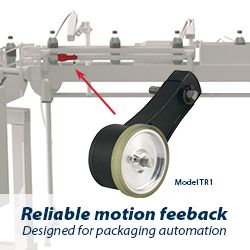Bally Ribbon Mills Offers Prototype Development and Testing for Woven Webbings
Showcasing the art and science of developing materials for challenging applications
Bally Ribbon Mills (BRM), an industry leader in the design, development, and manufacture of highly specialized engineered woven fabrics, offers prototype development and testing critical for ensuring that a fabric can perform for a particular purpose and in specific environmental conditions.
At BRM, all projects are prototyped and tested for the application - whether BRM has off the shelf fabrics or develops a new fabric. Every inquiry goes through a process that includes a regimented data creation method. Extensive sampling is performed on everything woven, dyed, and finished. All information is entered into a vast database of test data linked to all manufacturing processes. Application experts draw from this information during the product development stage to pair products with customer needs.
The process begins with communication between the customer and BRM to understand the application. The customer may show drawings and BRM shares relevant test report information. Following the information gathering stage, BRM application experts begin by searching the company's exhaustive materials database to determine if the customer can incorporate an existing off the shelf fabric into their development process. BRM sends customers several possible materials options, which the customer tests for actual application performance with regard to thickness, tensile strength, and the effects of UV or saltwater.
When the project cannot use an off the shelf item, BRM uses a rigorous regulated project planning control process for developing a new solution to meet the requirements. Weaving experts review all the specifications to gain a deep understanding of the environment the fabric will be used in, and the chemistry required. They then enter into a product development agreement for a particular application, which includes producing prototypes for detailed customer testing. In most cases, customers want prototypes to blow apart and model through observation rather than benchtop studies.
All applications are unique. They rarely fit into a neat box and it is simply not possible to predict the performance of any particular woven material for all applications. The BRM prototyping process is ideal for match up application performance requirements to a solution that meets established fiber performance and chemistry criteria.
For more information on BRM's prototyping and testing capabilities, go to www.ballyribbon.com.
###
About Bally Ribbon Mills
Bally Ribbon Mills (BRM) designs, develops, and manufactures highly specialized engineered woven webbing, tapes, specialty fabrics, woven preforms, and two dimensional and three dimensional structural fabrics. With more than 95 years of textile manufacturing experience, BRM has earned a reputation for meeting new advanced design challenges. Working in aerospace, defense, medical, safety, automotive, commercial, and industrial applications, BRM offers ingenuity, technical know-how, extensive weaving capabilities, and rigorous quality assurance systems. For more information, visit www.ballyribbon.com or call 610-845-2211.
Featured Product

Model TR1 Tru-Trac
The Model TR1 Tru-Trac® linear measurement solution is a versatile option for tracking velocity, position, or distance over a wide variety of surfaces. An integrated encoder, measuring wheel, and spring-loaded torsion arm in one, compact unit, the Model TR1 is easy to install. The spring-loaded torsion arm offers adjustable torsion load, allowing the Model TR1 to be mounted in almost any orientation - even upside-down. The threaded shaft on the pivot axis is field reversible, providing mounting access from either side. With operating speeds up to 3000 feet per minute, a wide variety of configuration options - including multiple wheel material options - and a housing made from a durable, conductive composite material that minimizes static buildup, the Model TR1 Tru-Trac® is the ideal solution for countless applications.
